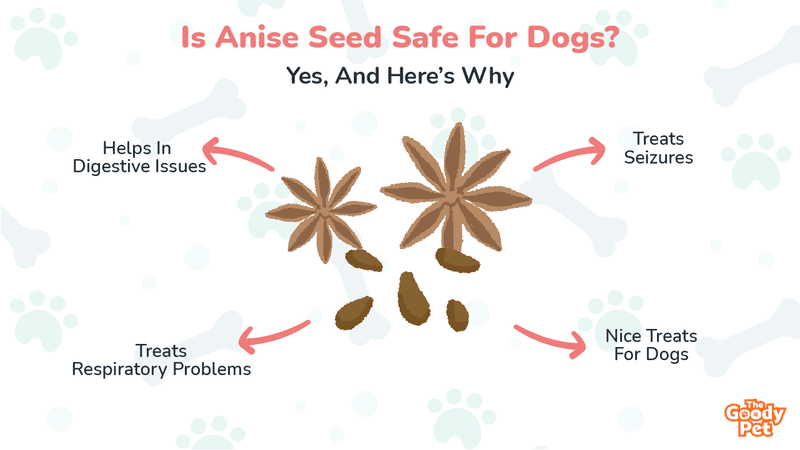There’s no doubt that anise seed is a favorite treat for dogs. But what is it about this spice that has canines going crazy? Turns out, anise contains a compound called anethole that mimics the effects of catnip on cats. So, is anise seed safe for dogs?
Yes, anise seed is safe for dogs to consume in small quantities. When consumed in large quantities, however, anise seed can cause vomiting and diarrhea in dogs. Anise seed can also be a mild laxative when consumed in large enough quantities.
Anise Seed is known to be a natural remedy for upset stomachs and gas in dogs. Additionally, some dog owners believe that Anise Seed can help to relieve anxiety and stress in dogs. However, there is no scientific evidence to support these claims.
Is There An Equivalent To Catnip For Dogs?
Anise is the catnip version for dogs and is different from catnip.
Also called aniseed, anise is an annual plant native to the Middle East and Egypt. This herbaceous plant has been cultivated for over four millennia for its medicinal properties.
It was mainly favored for its carminative effect, which is a fancy word for gas relief or combating flatulence.
Anise is a plant that has a sweet and aromatic licorice-like flavor. Dogs love it and will go crazy over it. However, unlike catnip which only affects cats for a couple of hours, anise keeps dogs attracted to its scent for hours on end. As such, the herb’s extract is used to cover fake rabbits used in foxhound races.
So, what does anise look like?
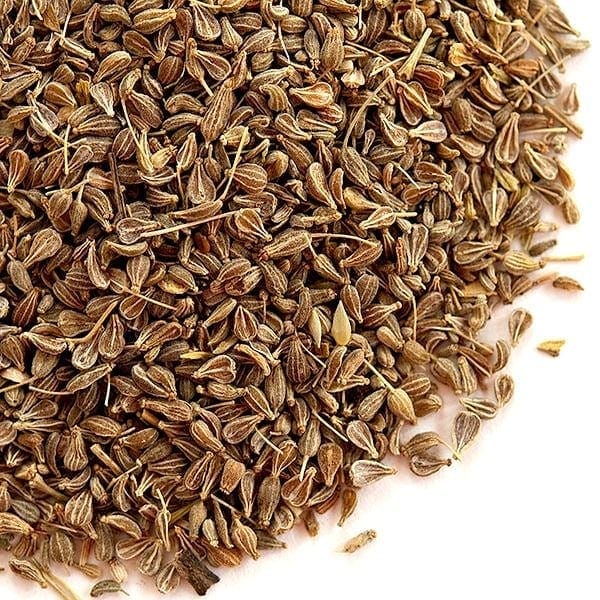
Aniseed is a little herbaceous plant with lacy leaves and white or yellow flowers. It grows to about 3 ft tall, with the leaves on the lower part of the stem being shallowly lobed and around 2 inches long.
Leaves on the upper part of the stem are feathery and divided into several smaller leaflets. Its fruit, known as aniseed, is small, dry, and grows up to ¼ inches long.
Anise is, however, not to be confused with star anise.
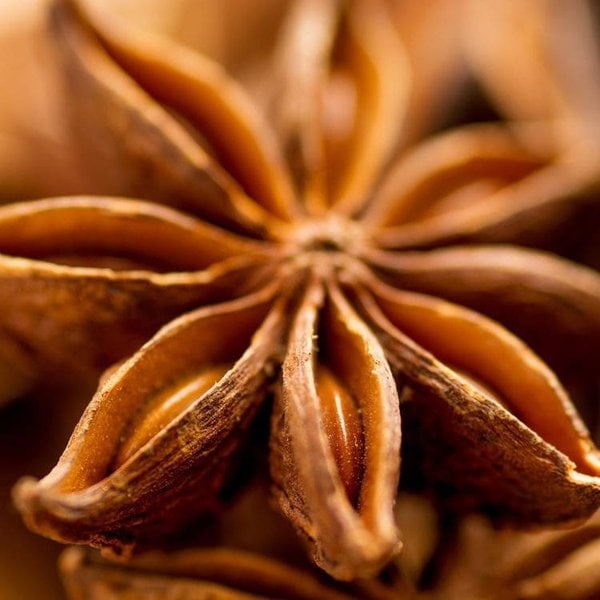
While both have a licorice flavor, star anise is different from anise in several ways. For example, star anise is a tree that grows to about 65 ft with a less potent flavor than aniseed. Most importantly, as far as equivalents for catnip for dogs go, anise is vastly more effective than anise.
What Effect Does Anise Have On Dogs?
Before you expose your dog to any substance that alters its behavior, you need to understand the full effects first. To guide you through this, let’s answer some important questions on the effects of anise and catnip dogs.
Does Anise Get Dogs High?
Dogs can be given aniseed in its various forms, including raw and powdered.
In most cases, after they ingest the herb, your dog will appear hyper and exhibit similar behavior to a person high on drugs.
Typically, after a dog ingests aniseed, it takes about 30 minutes for the energizing effect to manifest. However, anise does not affect all dogs in a similar manner.
While for most Fidos, the herb is a pick-me-up pill, for others, anise makes them mellow with reduced activity for a few hours.
What Effect Does Catnip Have on Dogs?
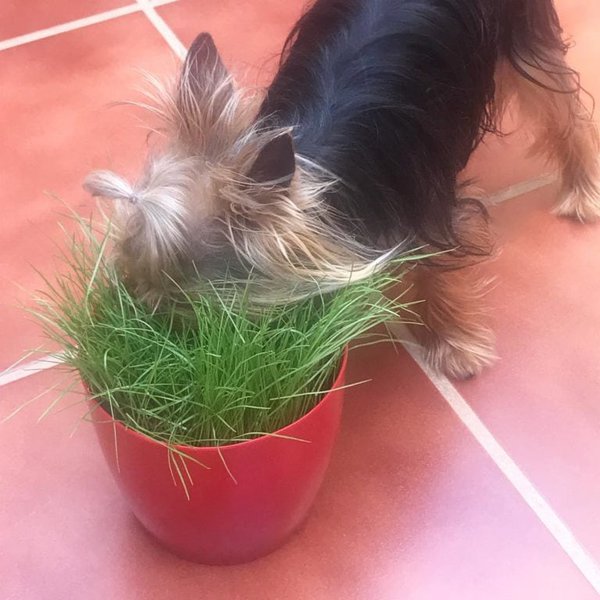
For starters, catnip is perfectly safe for dogs. The plant is non-toxic to both cats and dogs. The only difference is that while this green leaf makes cats hyper, it doesn’t make dogs go crazy.
What happens when you give dogs catnip is that they become mildly sedated. This makes catnip good for dogs with anxiety.
Apart from keeping your fido relaxed, catnip helps dogs sleep. As such, you can use catnip to help your furry friend adjust to a new sleeping schedule and alleviate sleep-related conditions.
Also, catnip helps to relieve stomach aches as well as car sickness. Also, the topical use of catnip is effective in repelling insects and treating wounds.
What Are The Benefits Of Anise Seed On Dogs?
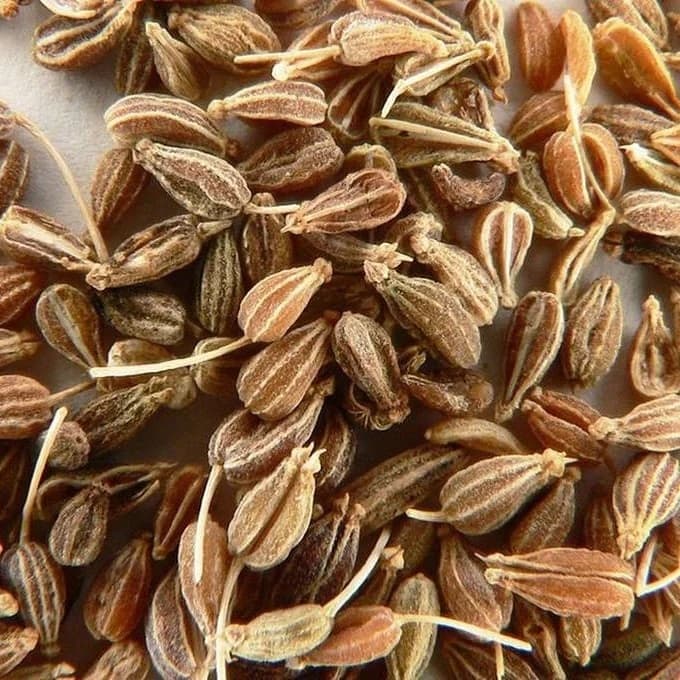
As we have noted, anise makes your furry bundle hyper and gets them moving. This herb does, however, come with other health benefits for dogs of all ages. Here is a brief look at some of the benefits.
Anise Helps In Digestive Issues
Dogs are quite hardy and, typically, they rarely get digestive issues. However, there are some factors that can lead to gastrointestinal disorders. Such include a sudden change in diet, trauma, medications, and ectoparasites.
Giving your furry friend a little anise powder or anise oil daily for a week does alleviate digestive issues. The treatment helps to reduce bloating, stomach aches, and irritable bowels.
Anise Treats Respiratory Problems
Respiratory issues in dogs can be caused by injury, pneumonia, lung infection, and inhalation of smoke. Some of the symptoms to look out for include fever, nasal discharge, coughing, and difficulty breathing.
The good thing is that, like in humans, respiratory problems in dogs can be treated using minty herbs. Anise is a perfect solution as it contains antibacterial and antiviral factors that help the immune system eliminate infections. It also constitutes thymol, anethole, and terpineol, compounds that are known to ease chest congestion.
Anise Treats Seizures
If a dog comes into contact with poison, it may end up having seizures. The disorder can also be brought about by other illnesses such as liver disease, stroke, head trauma, brain cancer, and kidney disease.
Symptoms include confusion, disorientation, fear, and temporary blindness. Anise extract has both neuroprotective and anticonvulsant factors that are effective in treating seizures.
Is Anise Toxic To Dogs?
While anise is beneficial to your dog’s health, too much of it can be toxic. Typically, anise for dogs comes in the form of treats. You will also find aniseed powder as a small constituent of dog treats. And when in its pure form, the powder or extract is given in very small dosages.
As a rule of thumb, only add about 3 to 5 dry anise seeds to a pound of dog food. You can also grind the seeds and sprinkle a small number of treats or toys.
Dogs are, however, primarily canines, meaning that meat is their main diet. As such, giving them too many herbal treats can be bad for their health.
So, is anise toxic to dogs?

If taken in high amounts, anise can rile up your dog’s stomach. Eating large amounts of anise for a long time also causes dogs to suffer from a depressed central nervous system (CNS). The disorder is characterized by a lack of coordination, dizziness, and lethargy.
Similarly, dogs can overdose on catnip. Though it’s not possible for your four-legged friend to die from eating catnip, an overdose is possible. Nipping too much on the herb can cause digestive issues, vomiting, breathing issues, and vomiting. As such, it helps to seek a vet’s advice on the right amount of catnip to give your dog, depending on age and weight.
Where To Get Anise For Dogs?
Are you big on DIYs and probably have a kitchen garden with herbs? If so, it’s time you considered planting anise for your fido. In the meantime, here is where to buy anise products for dogs.
Bone Bons Carrot Anise Biscotti
Anise Biscotti is a USA-made treat for dogs of all ages. It comes with no additives, preservatives, food colors, salts, or sugar. Eggs, peanuts, honey, and flax make up some of the treat’s major ingredients. To add to the flavor, anise seeds are included in the formulation. Another ingredient of note is hemp seed which aids in skin, heart, and coat health.
McCormick Gourmet Organic Anise Seed
These are non-GMO organic anise seeds used as dog food toppers. Add a few anise seeds to foods such as soups, and sausages to make them enticing. You can also use the seeds to encourage feeding when switching your furry companion’s diet.
OliveNation Anise Oil
Use a few anise oil drops to replace whole or ground seeds. However, OliveNation Anise Oil is 100% pure. As such, you may need to dilute it before giving it to your dog. To dilute, mix 3 to 5 drops of anise oil with one teaspoon of carrier oil such as coconut and olive oil.
DIY Dog Treats
If you would rather go for a DIY anise treat, here is a recipe to try:
Use 150g cooked sweet potato, 70g peanut buttercream, two eggs, 350g wheat flour, and one tablespoon crushed aniseed. Mix the ingredients, cut the dough into stars or heart shapes, and bake for about 30 minutes until golden brown.
Related Questions
What Dishes Are Anise Used In? Anise is used to flavor a wide range of foods and drinks. It’s used in the preparation of pizzelle (Italian waffles), spice cookies, humbugs, biscuits, and bread. Ground anise is also added to soups, marinades, soy sauce, and spices. When it comes to beverages, anise is used in marmalades, liquor, and herbal tea.
Are Anise And Fennel The Same? While both Anise and Fennel have a licorice-like flavor and their seeds look similar, they are completely different. For starters, only seeds are edible in anise plants, while most of the fennel plants can be eaten, including seeds, bulbs, and leaves. Simply put, anise is a spice while fennel is more of a vegetable.
How Long Does Catnip Last On Dogs? Like most herbs, catnip takes around 30 minutes to take effect on dogs. Thereafter, the calmness brought about by catnip lasts for about 5 to 15 minutes. As such, administer it at least 30 minutes before exposing your dog to a stressful event such as a visit to the veterinarian.

